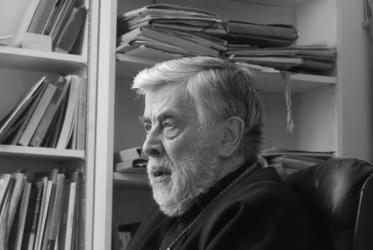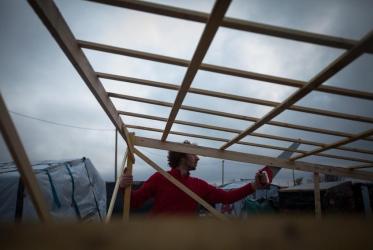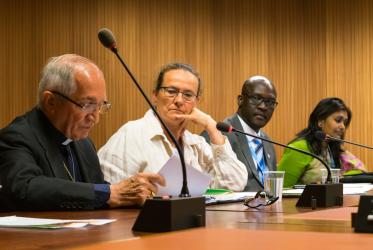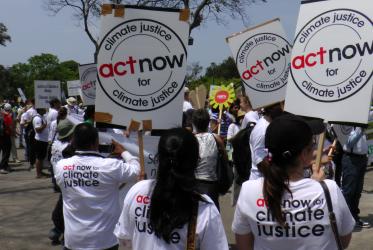Displaying 1 - 20 of 20
13 September 2022
G7 must address famine
22 May 2017
"I hit the ground running": Katalina Tahaafe-Williams
16 February 2016
WCC/UN conference calls for coordinated action on refugee crisis
20 January 2016
One refugee’s story: from Syria to France
07 January 2016
COP21: how climate change affects access to our daily bread
09 December 2015
Faith leaders urge action at UN climate talks
02 December 2015
WCC urges responsibility for and support to the refugees in Europe
04 September 2015
Churches' “prophetic voice” will be busy in 2015
18 June 2015
WCC Executive Committee speaks out on migrant crises
12 June 2015















